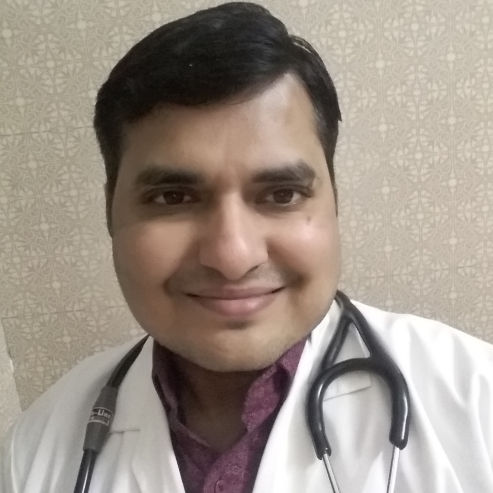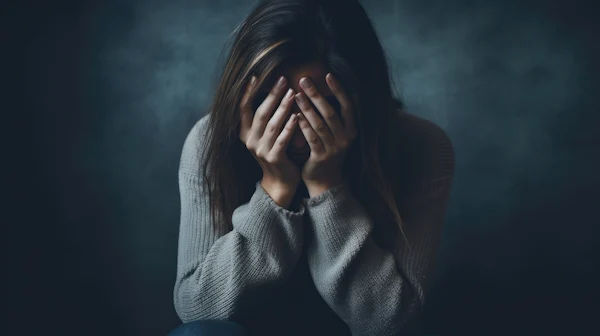Understanding Depression and Its Factors
Explore the key aspects of depression, including its symptoms, underlying causes, and risk factors. Learn how this common mental health condition affects daily life and discover available treatment options.

Written by Dr. Vasanthasree Nair
Reviewed by Dr. Mohammed Kamran MBBS, FIDM
Last updated on 13th Jan, 2026

Introduction
Depression is more than just feeling sad or going through a rough patch; it’s a serious mental health condition that affects millions of people worldwide. If you or someone you know is struggling with depression, understanding its causes, symptoms, and ways to manage it can make a big difference.
What Is Depression?
Depression is a mood disorder that causes persistent feelings of sadness, hopelessness, and a lack of interest in daily activities. It can interfere with work, relationships, and overall well-being. Unlike temporary sadness, depression lasts for weeks, months, or even years if left untreated.
Consult a Psychiatrist for the best advice
Common Symptoms of Depression
Depression affects people differently, but some common signs include:
Emotional Symptoms:
- Persistent sadness, anxiety, or emptiness
- Feelings of guilt, worthlessness, or helplessness
- Irritability or frustration over small matters
- Loss of interest in hobbies or activities once enjoyed
Physical Symptoms:
- Fatigue or low energy
- Changes in appetite (overeating or loss of hunger)
- Sleep problems (insomnia or excessive sleeping)
- Unexplained aches and pains
Cognitive Symptoms:
- Trouble concentrating or making decisions
- Negative thoughts, including thoughts of death or suicide
If you or someone you know is experiencing these symptoms for more than two weeks, it may be time to seek help.
What Causes Depression?
Depression doesn’t have a single cause; it often results from a combination of factors:
1. Biological Factors:
- Chemical Imbalance: Changes in brain chemicals (like serotonin and dopamine) can affect mood.
- Genetics: A family history of depression increases the risk.
2. Psychological Factors:
- Trauma, stress, or childhood experiences can contribute.
- Low self-esteem or negative thinking patterns may worsen symptoms.
3. Environmental Factors:
- Major life changes (job loss, divorce, grief)
- Chronic illness or pain
- Social isolation or lack of support
4. Lifestyle Factors:
- Poor diet, lack of exercise, or substance abuse
- Sleep deprivation or irregular sleep patterns
How Depression Affects Daily Life
Depression doesn’t just impact emotions; it can disrupt every aspect of life:
- Work & Productivity: Difficulty focusing, absenteeism, or poor performance.
- Relationships: Withdrawal from loved ones, conflicts, or emotional distance.
- Physical Health: Increased risk of heart disease, diabetes, and weakened immunity.
Managing Depression: Steps Toward Healing
While depression can feel overwhelming, there are ways to manage and improve symptoms:
1. Seek Professional Help
- Therapy: Counseling (like Cognitive Behavioral Therapy) helps change negative thought patterns.
- Medication: Antidepressants may be prescribed to balance brain chemicals.
- Support Groups: Sharing experiences with others can reduce feelings of isolation.
2. Lifestyle Changes
- Exercise: Even a short walk can boost mood by releasing endorphins.
- Healthy Diet: Foods rich in omega-3s (like fish), whole grains, and leafy greens support brain health.
- Sleep Routine: Aim for 7-9 hours of quality sleep.
3. Mindfulness & Relaxation
- Meditation & Yoga: Helps reduce stress and improve emotional balance.
- Deep Breathing Exercises: Can calm anxiety and improve focus.
4. Stay Connected
- Talk to trusted friends or family; don’t isolate yourself.
- Engage in social activities, even if you don’t feel like it.
5. Avoid Alcohol & Drugs
- Substance use can worsen depression symptoms.
When to Seek Immediate Help
If you or someone you know is experiencing suicidal thoughts, reach out for help immediately:
- Call a helpline (like India’s Vandrevala Foundation Helpline: 1860-2662-345).
- Visit a mental health professional or emergency room.
Final Thoughts
Depression is a real and treatable condition. If you’re struggling, remember that seeking help is a sign of strength, not weakness. Small steps like talking to someone, adjusting your lifestyle, or consulting a professional can lead to significant improvements.
Consult a Psychiatrist for the best advice
Consult a Psychiatrist for the best advice

Dr. Kommoju Venkata Eswar
Psychiatrist
8 Years • MBBS, MD Psychiatry
Avenue
Wellness Point, Avenue

Dr. Vivek Pathak
Psychiatrist
15 Years • MBBS, MD (Psychiatry)
Noida
𝗗𝗿 𝗞𝗨𝗠𝗔𝗥'𝗦 𝗙𝗔𝗠𝗜𝗟𝗬 𝗖𝗟𝗜𝗡𝗜𝗖 𝗮𝗻𝗱 𝗩𝗔𝗖𝗖𝗜𝗡𝗔𝗧𝗜𝗢𝗡, Noida
(25+ Patients)

Dr Rohit Ranjan
Psychiatrist
10 Years • MBBS, MD (Psychiatry)
Bengaluru
Apollo Medical Center, Marathahalli, Bengaluru
(25+ Patients)

Dr. Kamal Kishore Verma
Psychiatrist
15 Years • MBBS, MD (SPM), DNB (Psychiatry)
Mathura
PEACEFUL MIND CLINIC, Mathura
(50+ Patients)

Dr Harish K S
Psychiatrist
6 Years • MBBS, MD Pychaitrist
Bengaluru
Apollo Clinic, JP nagar, Bengaluru
Consult a Psychiatrist for the best advice

Dr. Kommoju Venkata Eswar
Psychiatrist
8 Years • MBBS, MD Psychiatry
Avenue
Wellness Point, Avenue

Dr. Vivek Pathak
Psychiatrist
15 Years • MBBS, MD (Psychiatry)
Noida
𝗗𝗿 𝗞𝗨𝗠𝗔𝗥'𝗦 𝗙𝗔𝗠𝗜𝗟𝗬 𝗖𝗟𝗜𝗡𝗜𝗖 𝗮𝗻𝗱 𝗩𝗔𝗖𝗖𝗜𝗡𝗔𝗧𝗜𝗢𝗡, Noida
(25+ Patients)

Dr Rohit Ranjan
Psychiatrist
10 Years • MBBS, MD (Psychiatry)
Bengaluru
Apollo Medical Center, Marathahalli, Bengaluru
(25+ Patients)

Dr. Kamal Kishore Verma
Psychiatrist
15 Years • MBBS, MD (SPM), DNB (Psychiatry)
Mathura
PEACEFUL MIND CLINIC, Mathura
(50+ Patients)

Dr Harish K S
Psychiatrist
6 Years • MBBS, MD Pychaitrist
Bengaluru
Apollo Clinic, JP nagar, Bengaluru




